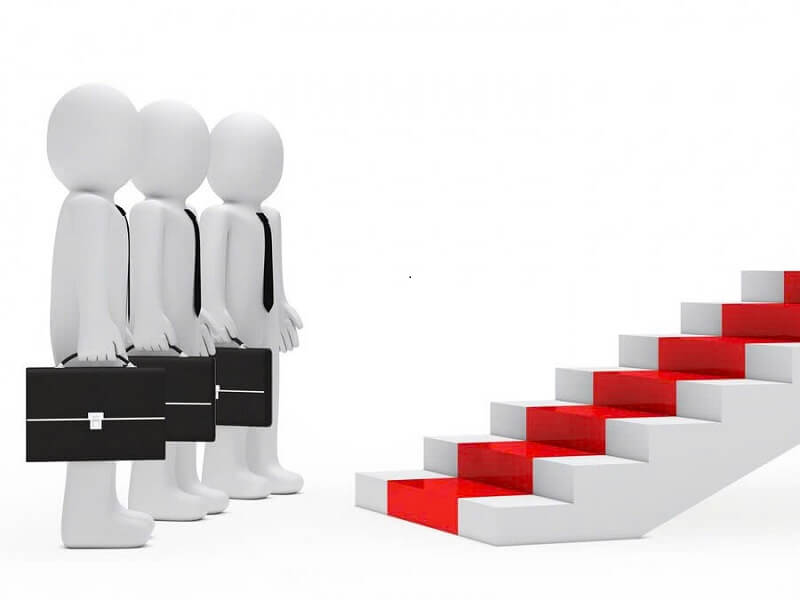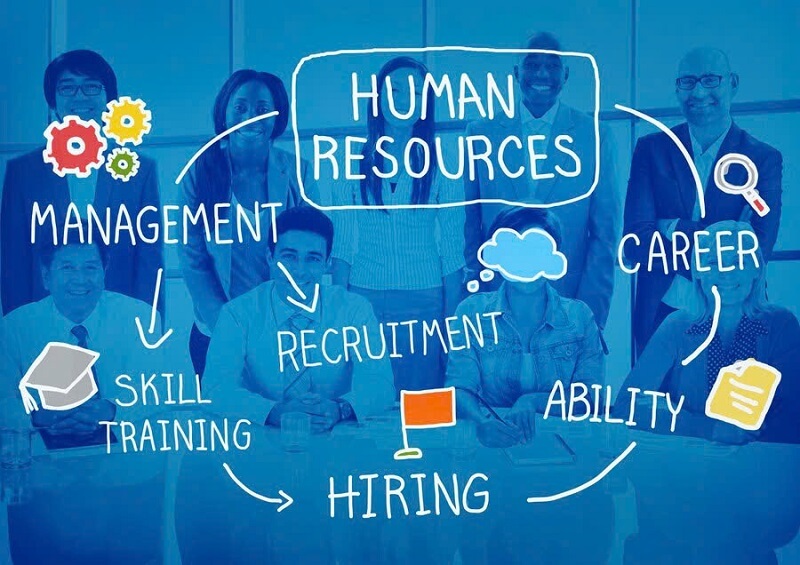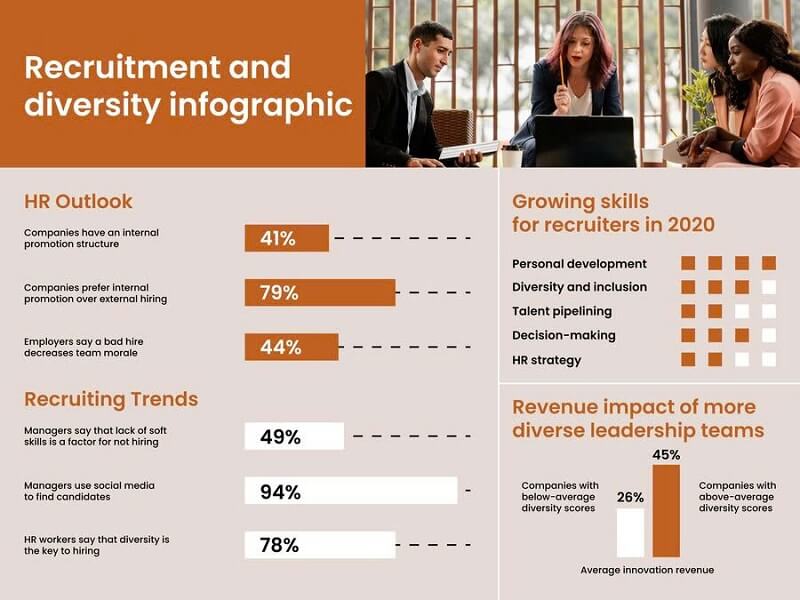A Comprehensive and In-Depth Job Description for HR Generalist
An HR Generalist is a cornerstone of effective human resources management. They perform a wide range of duties, ensuring that both employees and management work harmoniously toward achieving organizational goals. From recruitment to compliance, their responsibilities span across critical areas of the HR spectrum. In this article, we’ll break down a comprehensive job description HR Generalist, highlighting key responsibilities, necessary skills, and career growth opportunities in this role.
A Human Resources (HR) Generalist is an indispensable figure in any organization, acting as the linchpin that connects employees with management. Unlike HR specialists, who focus on a single area like recruitment or training, HR Generalists cover a wide array of HR functions. Their versatility allows them to adapt to various situations and respond effectively to the dynamic needs of a workplace.
In today’s competitive job market, the role of an HR Generalist has gained significant importance. Organizations are looking for professionals who can oversee everything from recruitment and onboarding to compliance and employee relations. The job description HR Generalist reflects this breadth, emphasizing a diverse skill set that combines technical knowledge, interpersonal abilities, and strategic thinking.
1. Introduction to the HR Generalist Role
A Human Resources (HR) Generalist is an indispensable figure in any organization, acting as the linchpin that connects employees with management. Unlike HR specialists, who focus on a single area like recruitment or training, HR Generalists cover a wide array of HR functions. Their versatility allows them to adapt to various situations and respond effectively to the dynamic needs of a workplace.

In today’s competitive job market, the role of an HR Generalist has gained significant importance. Organizations are looking for professionals who can oversee everything from recruitment and onboarding to compliance and employee relations. The job description HR Generalist reflects this breadth, emphasizing a diverse skill set that combines technical knowledge, interpersonal abilities, and strategic thinking.
1.1. Understanding the Versatility of HR Generalists
HR Generalists wear many hats, and their responsibilities often overlap with those of HR specialists and managers. They are tasked with handling recruitment, developing employee training programs, ensuring compliance with labor laws, managing payroll and benefits, and fostering a positive workplace culture.
For example, consider a medium-sized company facing challenges in employee retention. The HR Generalist steps in to analyze turnover data, conduct exit interviews, and implement policies to address common grievances. This proactive approach underscores the generalist’s role as a problem-solver who works across multiple HR disciplines to create solutions tailored to organizational needs.
1.2. Why the HR Generalist Role Is Critical
The role of the HR Generalist is not just operational but also strategic. They help organizations align HR practices with business goals, ensuring that human resources are leveraged as a strategic asset. This dual focus on daily operations and long-term strategy makes the HR Generalist a key player in organizational success.
For instance, during periods of rapid growth, an HR Generalist might develop and implement scalable onboarding processes to accommodate a surge in new hires. Similarly, in times of economic downturn, they may design cost-effective employee engagement programs to maintain morale without straining the budget. These examples illustrate the adaptability and foresight required to excel in this role.
1.3. The Growing Demand for HR Generalists
With businesses increasingly recognizing the value of comprehensive HR management, the demand for HR Generalists continues to rise. Their ability to bridge the gap between employees and management, coupled with their broad skill set, makes them invaluable in organizations of all sizes.
Moreover, the rise of remote work and globalization has added new dimensions to the HR Generalist role. They are now expected to navigate complex challenges such as managing virtual teams, addressing cross-cultural workplace dynamics, and staying updated on international labor laws. These evolving demands highlight why the job description HR Generalist remains dynamic and multifaceted, adapting to the changing landscape of work.
1.4. Key Attributes of Successful HR Generalists
Success in the HR Generalist role requires a unique blend of technical expertise, emotional intelligence, and resilience. These professionals must be excellent communicators, capable of listening empathetically while providing clear and actionable advice. They also need strong analytical skills to interpret workforce data and make evidence-based decisions.
For example, an HR Generalist dealing with high absenteeism rates might analyze attendance records, identify trends, and collaborate with department heads to implement flexible work policies. Such actions not only address immediate issues but also contribute to long-term employee satisfaction and productivity.
2. Key Responsibilities of an HR Generalist
HR Generalists are responsible for creating comprehensive job descriptions that accurately reflect the needs of their organization. By referencing a job description sample, they can ensure consistency and clarity, tailoring each description to attract the right candidates. These documents often highlight key responsibilities, required skills, and organizational values, which are crucial in aligning recruitment efforts with company goals.

Recruitment and Talent Acquisition
The recruitment process is a vital part of an HR Generalist’s role. They design job postings, screen resumes, conduct interviews, and collaborate with department heads to hire the best candidates. By ensuring that the right talent joins the organization, HR Generalists contribute significantly to a company’s growth and stability.
Employee Relations and Workplace Management
Handling employee relations is another critical duty. HR Generalists mediate disputes, address grievances, and implement policies that promote inclusivity and fairness. Their role in creating a harmonious workplace is invaluable for maintaining a productive and motivated workforce.
Compliance with Labor Laws and Regulations
HR Generalists play a crucial role in ensuring that companies adhere to labor laws and employment regulations. They stay updated on changes in legal requirements and implement policies that protect both employees and the organization. For example, they ensure fair labor practices, oversee workplace safety compliance, and manage documentation for audits or inspections. These tasks demonstrate why the job description HR Generalist emphasizes legal and ethical knowledge as key competencies.
Managing Compensation and Benefits Programs
Compensation and benefits management is another area where HR Generalists excel. They analyze market trends to propose competitive salary packages, design comprehensive benefits programs, and ensure timely payroll processing. By balancing organizational budgets with employee expectations, HR Generalists contribute to employee satisfaction and retention.
3. Essential Skills and Qualifications for an HR Generalist
HR Generalists must possess a balanced combination of technical proficiency and interpersonal abilities. Understanding the importance of hard skills vs soft skills is crucial in their role. While hard skills like proficiency in HR software ensure operational efficiency, soft skills such as communication and empathy are vital for resolving workplace conflicts and building strong relationships across the organization.

3.1. Interpersonal and Communication Skills
Success in the HR Generalist role depends heavily on interpersonal and communication skills. From conducting interviews to resolving workplace disputes, these professionals must articulate ideas clearly and build trust among employees. Strong communication skills also enable them to deliver effective training programs and facilitate open dialogues between staff and management.
3.2. Problem-Solving and Decision-Making Abilities
The ability to address challenges promptly is a hallmark of effective HR Generalists. Whether it's mediating a conflict or addressing sudden compliance issues, their decision-making skills ensure smooth HR operations. This capability is particularly highlighted in the job description HR Generalist, as it directly impacts organizational efficiency.
3.3. Knowledge of HR Software and Technology
In today’s digital age, proficiency in HR software is essential for HR Generalists. Tools like applicant tracking systems (ATS), payroll software, and performance management platforms streamline their daily tasks. Familiarity with these technologies not only improves efficiency but also reduces errors in HR processes.
4. Career Growth Opportunities for HR Generalists
The role of an HR Generalist serves as a strong foundation for diverse career advancement opportunities in human resources. With their broad expertise, HR Generalists can transition into specialized roles such as Talent Acquisition Specialist, Compensation and Benefits Analyst, or Employee Relations Manager. Many also move into strategic positions, including HR Manager or Director, where they influence organizational policies and culture. Additionally, gaining certifications like SHRM-CP or PHR can further accelerate career progression. The versatility highlighted in the job description HR Generalist ensures a wealth of paths for professional growth, allowing individuals to tailor their careers to their passions and strengths.

4.1. Advancement to HR Manager or Specialist Roles
HR Generalists often use their broad skill set as a stepping stone to specialized or managerial positions. With experience, they can transition into roles like HR Manager, Talent Acquisition Specialist, or Compensation Analyst. This career progression reflects the flexibility and growth potential outlined in the job description HR Generalist.
4.2. Expanding Expertise in Strategic HR Functions
As organizations increasingly value strategic HR management, HR Generalists have the opportunity to take on roles involving workforce planning, diversity and inclusion initiatives, and organizational development. By expanding their expertise, they can influence company culture and long-term business success.
5. Challenges Faced by HR Generalists
HR Generalists encounter numerous challenges in their multifaceted role, ranging from managing diverse responsibilities to staying compliant with ever-changing labor laws. Balancing recruitment, employee relations, compliance, and administrative duties often requires exceptional time management and prioritization skills. Additionally, adapting to workplace conflicts, addressing employee grievances, and fostering a positive work environment can be demanding, particularly in fast-paced or resource-constrained organizations. The constant need to stay updated on legal and industry trends adds another layer of complexity, making the role of an HR Generalist both challenging and rewarding.

5.1. Balancing Multiple Responsibilities
One of the most significant challenges HR Generalists face is managing their wide-ranging responsibilities. They often juggle recruitment, employee relations, compliance, and administrative tasks simultaneously. This multitasking demands excellent organizational skills and the ability to prioritize effectively. The job description HR Generalist frequently underscores the need for professionals who can handle high-pressure situations without compromising on quality.
5.2. Keeping Up with Evolving Regulations
Employment laws and workplace regulations are constantly changing, making it challenging for HR Generalists to stay updated. They must invest time in continuous learning and attend workshops or seminars to ensure compliance. Failure to adapt to these changes can result in legal risks for the organization, highlighting why regulatory knowledge is a core aspect of the job description HR Generalist.
5.3. Navigating Workplace Conflicts
Resolving disputes between employees or addressing grievances requires tact, patience, and strong negotiation skills. Mismanaged conflicts can escalate, affecting workplace morale and productivity. HR Generalists must adopt a fair and empathetic approach, ensuring resolutions align with organizational policies while maintaining harmony among team members.
6. Best Practices for HR Generalists
To excel in their role, HR Generalists must adopt best practices that enhance efficiency and effectiveness across their diverse responsibilities. Prioritizing continuous learning and staying updated with the latest HR trends and technologies is essential for staying competitive. Building strong relationships with employees and management fosters trust and ensures smoother communication.
Additionally, leveraging HR software and automation tools streamlines tasks such as payroll processing and performance tracking, allowing HR Generalists to focus on strategic initiatives. By integrating these practices, HR Generalists can maximize their impact and contribute significantly to organizational success.

6.1. Continuous Learning and Professional Development
HR is a dynamic field that requires professionals to keep pace with industry trends and emerging best practices. HR Generalists can attend certification programs such as SHRM-CP or PHR to enhance their expertise. These certifications not only strengthen their knowledge base but also improve their credibility, making them more competitive in the job market. By embodying the principles outlined in the job description HR Generalist, they can excel in their roles and contribute more effectively to their organizations.
6.2. Building Strong Workplace Relationships
Fostering positive relationships with employees and management is crucial for HR Generalists. They should actively engage with team members, listen to their concerns, and promote open communication. By creating a supportive and inclusive environment, HR Generalists can build trust and enhance employee satisfaction, which ultimately contributes to organizational success.
6.3 Leveraging Technology for Efficiency
Incorporating HR software into daily tasks is a game-changer for efficiency. Tools such as employee self-service portals, performance tracking systems, and automated payroll software can significantly reduce manual workload. The ability to leverage technology aligns with the forward-thinking approach often emphasized in the job description HR Generalist, enabling them to focus more on strategic initiatives.
- Essential Job Description Supervisor Guide for Success
- Essential Job Description Sales Guide for Success
- Job Description Restaurant Manager – Roles & Skills
- Understanding the job description project coordinator role
- Job Description HR Assistant—Roles and Responsibilities
- Essential Guide to Job Description COO
- Comprehensive Job Description Admin Assistant Insights
- A Comprehensive and In-Depth Job Description for HR Generalist
- Comprehensive Guide: Job Description Executive Chef
- Top 5 Best Job Search Sites for Easy Job Applications
- QA Job Description: Key Skills and Roles in 2025
- The Complete Clerk Job Description Guide
- What Is Your Greatest Weakness? Mastering the Answer
- Master the Phone Interview for Career Success
- Crafting the Perfect CV Personal Statement
- What is a Job Description Warehouse Worker?
- Detailed job description teller bank for career growth
- Comprehensive Job Description Store Manager Guide
- Comprehensive Guide to Job Description Personal Assistant
- Comprehensive Guide to Job Description Nursing Assistant
- Comprehensive Job Description Graphic Designer Guide
- Comprehensive Job Description Chief of Staff Guide
- Comprehensive Job Description Cleaner Guide
- Comprehensive Job Description Assistant Manager
- Comprehensive Guide to Job Description Account Executive
- Comprehensive Guide to Secretary Job Description
- Comprehensive Job Description of Teaching Assistant
- Comprehensive Job Description for a Social Media Manager
- Mastering STAR Interview Techniques: The Ultimate Guide
- “I Hate My Job” – What You Should Do Next
- What Is a Job Description Team Leader?
- A Complete Guide to Job Description Sales Assistant
- Comprehensive Job Description for Security Guards
- Detailed Job Description for HR Manager
- The Ultimate Guide to Job Description Medical Assistant
- Job Description Housekeeping: Key Roles & Responsibilities
- Job Description Merchandiser: Key Roles & Skills
- Job Description Product Manager: Roles and Responsibilities
- Job Description Account Manager: Roles and Responsibilities
- Job Description Marketing Manager: Roles & Skills
- Job Description HR: The Essential Guide for HR Professionals
- Best Jobs for Introverts: Top Careers for Quiet Thinkers
- What is Your Greatest Strength? How to Answer Effectively
- Job Description Data Entry Guide
- Detailed Job Description Sales Manager Guide
- The Importance of Work Experience on a Resume
- Comprehensive Job Description Sales Representative Insights
- Comprehensive Job Description of Project Manager
- Job Description Executive Assistant: Key Responsibilities
- Job Description for Sales Executive: Key Roles and Skills
- Job Description Customer Service Roles
- Job Description Business Analyst: Roles and Skills
- Comprehensive Job Description for a Receptionist
- Mastering the Sales Associate Job Description
- Understanding Accountant Job Description in Detail
- Hard Skills vs Soft Skills: Key Differences and Examples
- Why Do You Want to Work Here? Best Answer and Examples
- How to Decline a Job Offer Politely and Gracefully
- Comprehensive Job Description of Waitress
- Job Description Cashier: Key Responsibilities and Skills
- Where Do You See Yourself in 5 Years?
- Mastering Problem Solving Skills for Career Success
- Effective Job Description Sample Guide
- Behavioral Interview Questions Guide
- Comprehensive Job Description for an Administrative Assistant
- Essential Job Titles for Career Success
- Master Leadership Skills for Effective Management
- How to Write a Perfect Motivational Letter
- CV vs Resume: Understanding the Key Differences
- Top Reasons for Leaving a Job Today
- What Is a Resignation Letter? Key Details You Must Know
- How to Write a Perfect Job Application
